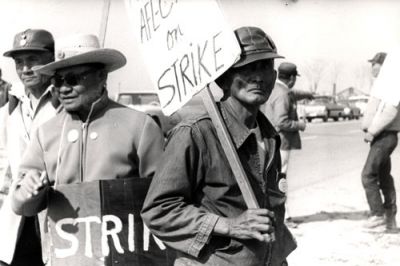Court of Appeal Confirms California Cap-and-Trade is Not a Tax
It’s voluntary and it provides valuable commodities to purchasers
With the feds backsliding (or worse) on climate regulation, the efforts of California and other states to tackle climate change are especially prominent and critical. So it’s a welcome time for today’s good news for California climate regulators: The state court of appeal has rejected industry’s challenge to California’s cap-and-trade program. That program is one important component of California’s plan to achieve its ambitious 2020 and 2030 climate emission reduction goals. As I discussed here and here, the cap-and-trade auction was challenged in court as unlawful by some industry plaintiffs. A trial court rejected industry’s challenge four years ago; today’s appellate decision affirms that the auction is lawful. Rick Frank recently wrote about the appellate oral argument in this case. (And full disclosure: Both Eric Biber and I wrote amicus briefs supporting the state in this case, Eric for economists and me for The Nature Conservancy through our UCLA Law Environmental Law Clinic, with the help of students in our program.)
Here’s a copy of the decision. It rejects more or less out of hand industry’s statutory argument that AB 32 never authorized the auction. It also rejects the more complex wing of industry’s challenge, namely the argument that the auction was a back-door tax that never received the 2/3 supermajority vote required for taxes under the governing law at the time, Proposition 13. Here’s the summary of the appellate court’s view of that argument:
[T]he auction system does not equate to a tax subject to Proposition 13. This is so for two interrelated reasons: First, the purchase of emissions allowances, whether directly from the Board at auction or on the secondary market, is a business-driven decision, not a governmentally compelled decision; second, unlike any other tax to which we have been referred by the parties, the purchase of an emissions allowance conveys a valuable property interest–the privilege to pollute California’s air–that may be freely sold or traded on the secondary market. Thus, the trial court correctly identified the two facts we find make the auction system unlike a tax, (1) participation is voluntary, and (2) entities receive a thing of value in exchange for obtaining allowances.
In other words, and consistent with the urgings of the state and its supporters, the Court declines to view the auction as either a tax or as traditional regulatory fee of the type set forth in the landmark Sinclair Paint case. It treats the auction as something else entirely, something more like a voluntary purchase of a market good. I’ll have more to say about this analytical approach taken by the court. For now, it’s fascinating to consider the effect of this ruling on potential future extensions of cap-and-trade. The current program runs only through 2020, and there’s a push in the legislature this year to explicitly authorize an extension of the program past 2020 with a new bill. Many had believed that the new legislation would require a 2/3 majority vote under revamped tax rules imposed by Proposition 26, the state’s more stringent update to Proposition 13. Though the court of appeal declines to address the implications of its decision for a new cap and trade bill under the Prop. 26 regime, its rationale makes the auction look less like a tax under any analytical approach.
Reader Comments
2 Replies to “Court of Appeal Confirms California Cap-and-Trade is Not a Tax”
Comments are closed.







Hi Cara,
I agree that yesterday’s decision is great news for California, but wanted to follow up on what this means for Prop 26 going forward. My view is that the definition of “tax” under Prop 13 (e.g. as articulated in yesterday’s decision) has no direct bearing on how that term is defined in Prop 26. So I remain convinced that the Legislature needs a 2/3 vote to extend carbon pricing after 2020 and hope they and the Governor will continue to pursue that plan.
It seems to me that suggesting a 2/3 vote isn’t needed is risky right now, especially without a comprehensive assessment of exactly why no such vote is needed—after all, when it comes to Prop 26, courts don’t have the flexibility in choosing alternative definitions of a “tax” (e.g. as in yesterday’s decision).
I wrote up a longer response here drawing on our respective quotes in this morning’s ClimateWire story:
https://www.ghgpolicy.org/blog/2017/4/7/media-court-upholds-cap-and-trade-program
Looking forward to continuing the conversation.
Danny
Hi, Danny – Thanks for the comment and the link to your post. I agree that by far the safest approach is to continue to pursue a 2/3 vote on any new bill–if only to bulletproof it and put the question to rest, which would have multiple benefits. I didn’t mean to suggest that I’m confident that this decision removes the need for a 2/3 vote. I’m not. If nothing else, this decision can and likely will be appealed to the Cal Supreme Court so may not be the last word. Even if it were the last word, you and I agree that Prop 26 poses unique and substantial challenges. It’s not clear what this decision means for the Prop 26 analysis. But do you agree that if push comes to shove under Prop. 26, the argument that the auction isn’t a covered exaction (but rather is a voluntary purchase of goods at their market price) is now more likely to succeed than it was earlier in the week? Curious if you’re unwilling to go even that far.